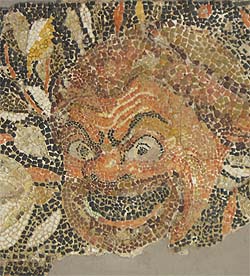Presocratic Philosophy

Philosophy of Nature
The origins of western philosophy and science can be found in the early Greek thinkers of the 6th and 7th century BC. The Presocratic philosophers lived and taught in Asia Minor, Thrace, Sicily and South Italy. Miletus was the native city of Thales, Anaximander and Anaximenes; Colophon of Xenophanes; Ephesus of Heraclitus; Samos of Pythagoras and Melissus; Elea of Parmenides and Zeno; Sicily of Empedocles; Clazomenes of Anaxagoras; Abdera of Leucippus and Democritus. The Presocratic philosophy is a philosophy of nature. The Presocratics combined Greek mythology with rational thinking and sought all the forces which compose nature. Socrates grew up in the atmosphere of the Presocratic thought and explored their knowledge and wisdom. Socrates gave philosophy for the first time an anthropocentric character. The absence of this element in previous thought is the main reason why the adjective 'Pre-Socratic' is attributed to the philosophers before Socrates. The central question of the Presocratic philosophy was: what is the nature of cosmos? Based on this question, the Presocratics explored the primary substance (arche) of cosmos, as well as all those cosmic forces on which the universe is founded.
Presocratic Theories
Through this exploration an incredible pluralism of Presocratic concepts and theories emerged. Thales stated that the primary substance was the water, Anaximander an indefinite apeiron, Anaximenes the air, Heraclitus an ever-living fire, Pythagoras and the Pythagoreans an immortal and incorporeal number, Parmenides and the Eleatics an unchangeable and timeless Being, Empedocles the four elements (fire, water, air and earth), Anaxagoras a creative Mind and finally, Leucippus and Democritus just atoms and void. Due to their materialistic views, the Presocratics are also known as hylozoists. Unfortunately, not even a single complete work survives from the Presocratic philosophers. Only fragments of their words and testimonies of their theories can be found in later ancient authors. Modern scholarship aims through these primary sources to reconstruct Presocratic thought and study the radical theories and concepts of these early Greek thinkers.
Hylozoism
Due to their materialistic views, the Presocratics are also known as hylozoists. Hylozoism means that matter (hyle) includes an self-developed living force (zoe) that can produce and re-produce the living organism without the intervention of an outside power or force.
IONIANS
Thales of Miletus
Anaximander of Miletus
Anaximenes of Miletus
Heraclitus of Ephesus
Xenophanes of Colophon
PYTHAGOREANS
Pythagoras of Samos
Philolaus of Croton
Archytas of Tarantum
Alcmaeon of Croton
ELEATICS
Parmenides of Elea
Zeno of Elea
Melissus of Samos
PLURALISTS
Empedocles of Acragas
Anaxagoras of Klazomenes
Democritus of Abdera
BIBLIOGRAPHY
RELATED SOURCES